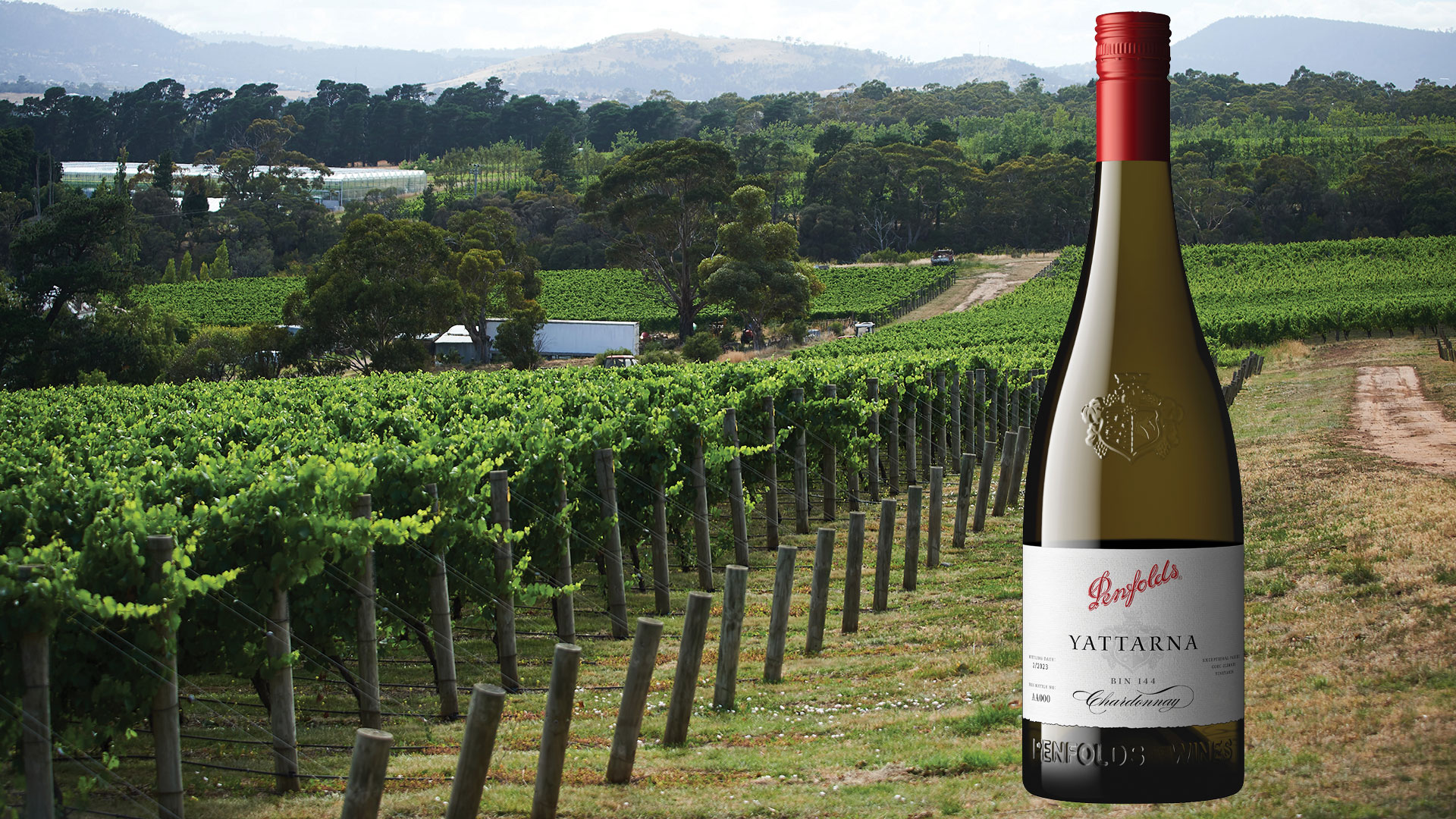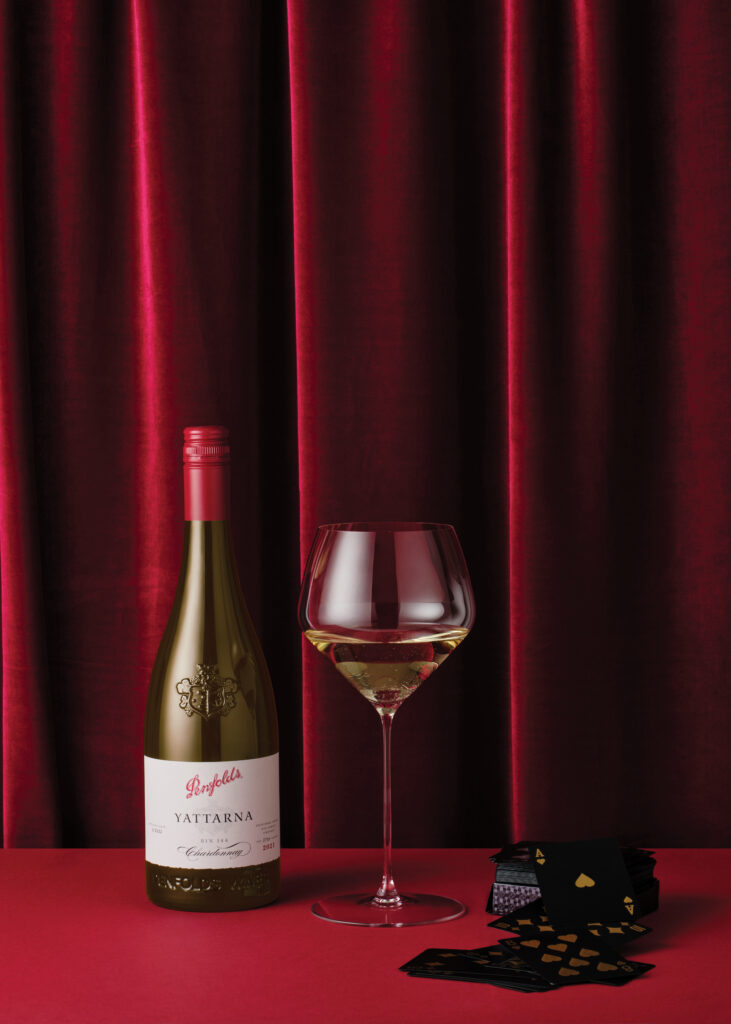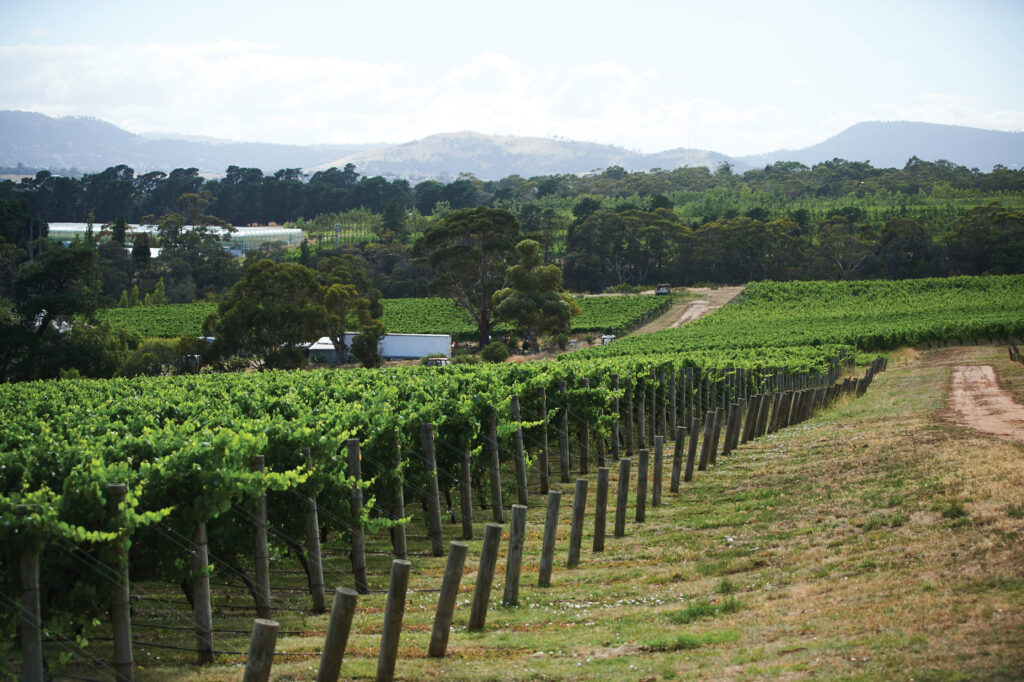
Super Tasmanians: Grapes from the island state have transformed Australian Chardonnay and gripped the wine world
Being situated at a far more southerly latitude has blessed Tasmania with a cooler climate and rendered it much distinct from other areas of viticulture in Australia. This gives the wines made in the island state unique characteristics compared to those across the country’s continental landmass. Popular grape varieties include Pinot Noir, Chardonnay and Sauvignon Blanc.
“In between Tasmania and Antarctica is nothing except for the Antarctic Ocean, so it’s an incredibly cool climate, which is fantastic for Chardonnay, in particular, but Pinot Noir and sparkling wine production as well,” says Steph Dutton, Penfolds’ Senior Winemaker.
Southern cool
Explaining its attraction for viticulturalists, she notes: “What people should really understand is that whilst Tasmania is cool and lies to south, it’s actually still quite dry, which are perfect conditions for growing grapes.”

She opines that the best examples of Australian Chardonnay herald from Tasmania. These super Tasmanian whites stand in contrast to the rest of Australia’s winemaking history with Chardonnay.
“Once upon a time, like 20 years ago, maybe more, our Chardonnays were incredibly ripe. They were buttery, often quite deep in colour and full of oak, and rarely would they age,” she says. “The big shift that happened in the Australian wine industry is we started to look at some cooler climate regions for that variety.”
Full pleasure
Dutton believes the cool climate of Tasmania and the dry conditions that lead to fairly safe growing seasons are a brilliant match for Chardonnay. “We get Chardonnay wines that are full of grip and structure, but also finesse and elegance,” she says. “[Chardonnays] should be intense; they should be full, but they should also show restraint and raciness, and Tasmania does that.”

Penfolds has vineyards in the prime wine regions of South Australia including Adelaide Hills, Barossa Valley and Coonawarra. It also owns vineyards in northern and southern Tasmania and partners with growers in the state. More than 85% of grapes in some vintages of its flagship Yattarna Chardonnay are sourced from Tasmania. Though technically not labelled as hailing from Tasmania, the state “has played more and more a pivotal role in this Yattarna production”.
Citrus and cream
Penfolds Yattarna Chardonnay is one of her favourite wines and she quickly recalls its beautiful, mouthwatering combination of tastes. “I always see this lovely what I call citrus curd, like lemon meringue pies, lemon tarts and lime tarts, where you’ve got both citrus and creaminess all coming together at once,” she says. “We often talk about the nougat with Yattarna, and I see it as still being quite fresh, almost like a pistachio nougat that comes through for the wine.” She also highlights the excellence of the Tasmanian Chardonnays emanating from Pooley Wines in the Coal River Valley and Derwent Estate in the Derwent Valley, both located in southern Tasmania, not far from the capital, Hobart.
Tannic grip
“These are wines that I really admire for the phenolic grip, their structure, and by that I mean how the wine feels in terms of shape in the mouth,” she says. “You don’t want anything that is too buttery. You don’t want anything that is too soft or oily, but you also don’t want anything that’s too firm and tight.” She likes to talk about the bones of a wine – the skeleton, its structure, the framework that is holding it together. “Both of these wines have this amazing structure. Indeed, all three of my favourites share the common thread that they are built for age-ability,” she says.







